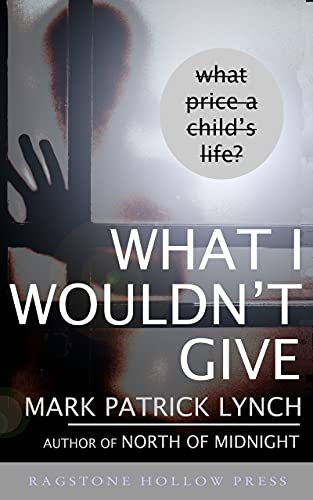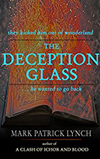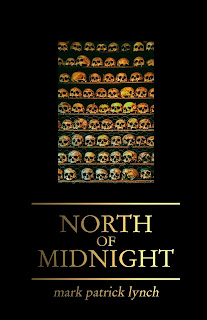ten questions
1) What is the title of your Book?
Hour of the Black Wolf.
2) Where did the idea come from?
I don’t think there was one specific originating point for this one. Ideas drift around idly in the deep currents of your subconscious, bump into one another, cling together and expand. If you’re lucky the better ones come to the surface. If you’re unlucky, the bad ones turn up. You know, things like – But then again, no, perhaps wiser not to go there.
The way I remember it, for a long time I’d had the idea about writing something based around one of the European landscape painters who first went to North America. Confronted with a whole new world, in effect, what must it have been like? Wild, untamed vistas everywhere. New geologies. All to capture in paint. Thing was, I didn’t have the resources to properly research it, let alone the skill set required to produce such a novel.
But I liked the idea of an artist in the Wild West, and over time and through some arcane process of evolution I thought it would be interesting to use the artist as someone gigging as a Wanted poster illustrator. Characters tend to present themselves to me more than plot ideas. Plot can be found through exploring your character. That character of someone exploring the Wild West with pencil and brush rather than with a sidearm stuck. Not so much of the macho. You know?
Anyway, when I learned that Robert Hale were open to unsolicited submissions for Westerns, that character jumped back up onto my shoulder and said, much like Jim Kerr but with a different voice, “Don’t you forget about me” and I started writing to see what would happen.
3) What genre best defines your book?
Western. More the entertaining end of the genre than the thoughtful, literary market. We’re not talking historically – or even geographically – accurate here. But it’s a fun read. Or is supposed to be.
4) What actors would you choose to play your characters in a movie?
Hm. Well, I jokingly had the two male protagonists down as younger versions of Clint Eastwood and John Wayne when I was asked this a while ago, but when I was writing the book they were only references for myself. Ciphers really. In real life, I don’t know who’d play anything. I guess Dick Dastardly would be a good villain. You know, the whole twirly moustache thing. Were he still alive, John Denver would have done well as the Reverend.
5) What is the one-sentence synopsis of your book?
Sheriff Gus Dudgeon attempts to keep alive a witness who could reveal the identity of the feared outlaw Black Wolf, while Gus’s friend, former Texas Ranger Will Tayling, fights the Wolf’s gang to bring a wanted poster artist into town to draw up an illustration of the outlaw.
6) Is the book self-published or represented by an agency?
The book’s in print, published in the summer of 2012 by Robert Hale Ltd, under their Black Horse Western imprint. It wasn’t represented by an agency. I subbed it directly to the publishers.
7) How long did it take you to write the first draft?
Ten days. Had a first draft just shy of 72,000 words.
Believe me, things don’t normally happen for me as quickly as that. I just happened to have fourteen days without any commitments, and those fourteen days coincided with a stint of good health. It’s remarkable the things you can do when your biorhythms are in sync.
I started writing on the first day and instead of stopping at an acceptable word-count, or at the point where I’d usually have to give up through tiredness, I just kept going, producing four to eight thousand words a day, sometimes more than that. At times I felt sad to be breaking off to go to sleep at night. Ten days of that and I had my first draft.
What did I do with the spare days after I’d finished the first draft? Sat around drinking decaff tea and feeling smug and a bit of a buzz.
8) What other books would you compare this story to within your genre?
I think it most closely resembles the movies I remember watching as a kid, and aspects of the Western TV series being screened back then, than the Westerns I read. Though no particular story in particular. Certainly the made-to-measure characters and set locations come from my hazy memories of The Lone Ranger and Bonanza and even Champion the Wonder Horse. Maybe Champion the Wonder Horse accounted for the role of a couple of kids in the piece, now that I think about it.
9) Who or what inspired you to write the book?
It was a set of circumstances. I’d written four books to this point, published a couple of handfuls of short stories in various genres ranging from science fiction to mainstream to chick lit. But the first book was wallowing in slush piles with agents. Because of the very slow response times I was getting – as the manuscript was mused over and kicked up the chain of command to head agents, seemingly enjoyed, and then mused over again as they met with the harsh economics of “is this commercial enough for us to spend time with?” – I’d written new books while the first was still stuck in the never-never world of presentations.
It was taking six months a time to get nowhere and I’d manuscripts that no agent had yet seen, let alone presented to a publisher. When I saw that there’d be somewhere to send the Western to, and because, as I said above, there was the window in which to try to get a first draft down, I went for it. And had a fun time doing it. And whaddayaknow, I got a published book out of it, brought out by a long-established, respected publisher, and it happened without the complications of involving the middlemen and women and worrying about all of that “business” stuff. It really was that easy.
10) What else about the book might pique the reader’s interest?
The theme of the book, if I may be so bold as to suggest there is a theme, is identity. I have some fun in the book playing about with that theme in ways that you wouldn’t be able to do in, say, a movie. So far the reviews for the book have managed to avoid spoilers, which I’m happy about. There’s a little trick in the book that I’m quite pleased with, and readers’ reactions to it so far have been a lot of fun.
experiments in ebooks (ii)





